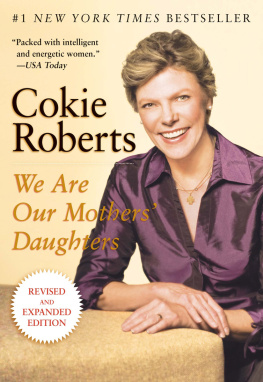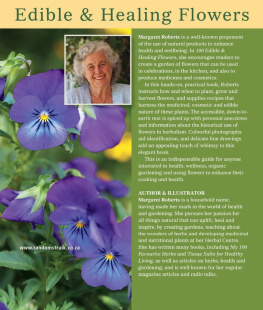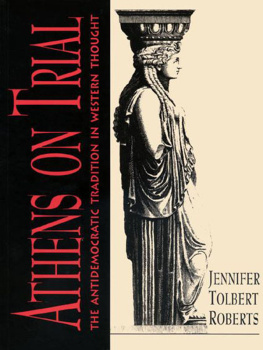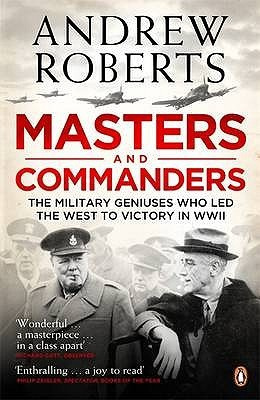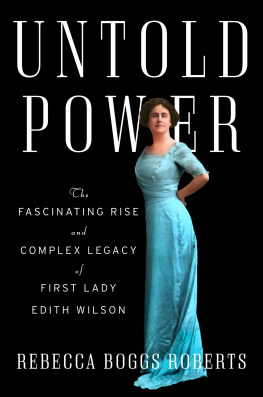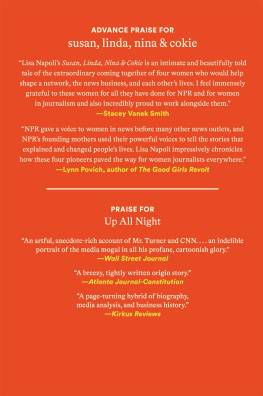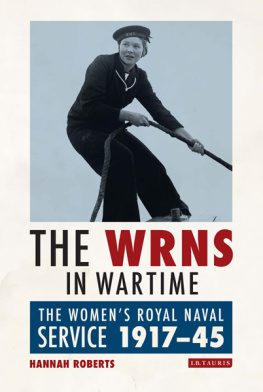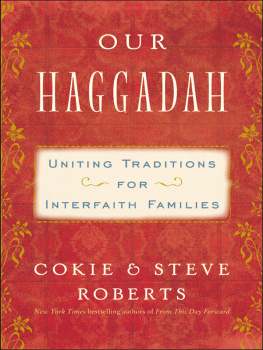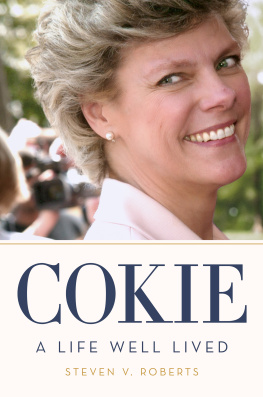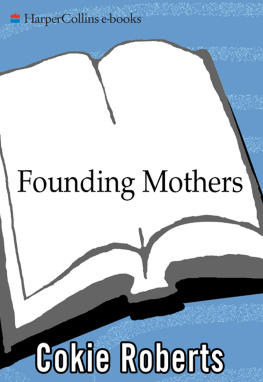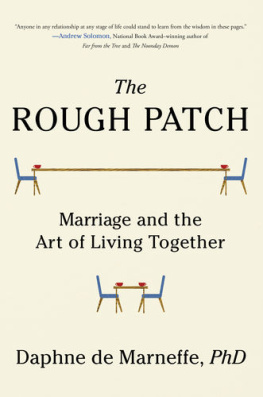This book is about women. But it would not be possible without a man. To my husband, Stevenmy mentor, my fan, my lover, my musethis book is dedicated.
THERES A REASON WE CELEBRATE BIRTHDAYS. AS ODD AS IT may sound, that fact has come as a surprise to me. I only realized the truth of it when I was asked to update this book. Of course I know how devoted children are to their birthdayshow they delight in the anticipation of their party, the event itself (with any luck), and, of course, the presents. But they are also excited about the fact that they are turning a year older, working their way up the ladder of humanhood. And they are right. In the first decade, between zero and ten, each year makes a huge difference; kids change almost before our eyes.
And then there are the years between ten and twenty, another time of tremendous change. Though I like teenagers, Im really glad that my own children will soon be worrying about their teenage children instead of me about them. But from twenty on, it all gets kind of amorphous. And so we hold celebrations to demark the differences whether we are aware of them or notthirty, forty, fifty, etc. Even as I participated in those rituals for friends and family and occasionally for myself, I didnt have a sense of those markers as milestonesuntil my mother turned ninety. Then I started telling people, I think that the years between eighty and ninety are like the years between ten and twenty, in terms of change. Everybody just thinks of old age as old age, I would say, but theres a tremendous difference in that decade. Truer, of course, for some than for others but true nonetheless.
Still, the assignment of taking another look at this book, and expanding it, has forced me to realize that there are great chasms we cross from one decade to the next. Not only does the world change around usten years ago we thought a blackberry was a piece of fruitbut we change ourselves. Think of the most common compliment a woman my age receives: You havent changed a bit. Its usually not true, but the fact that its meant to flatter is telling. In fact, I have changed a lot. When I first wrote this book I was in my early fifties and felt like I had finally come into my own. I was old enough and accomplished enough that for the first time in my life, men were taking me seriously. I was anchoring a program on network television and my personal life was on an even, and wonderfully satisfying, keel. My husband of thirty-one years and I were both healthy and happy, my children had each just gotten married, and my mother had just been assigned to a new job as U.S. ambassador to the Vatican. Life was brimming over with possibility.
And Ive realized those possibilities. I was able to cut back on my work at ABC in order to do something that I had wanted to do for a long timeget involved in volunteer work. For years I had preached that women of my generation who went from college directly into the workforce had an obligation at some point in our lives to do what many of our mothers did by way of contributing to their communities. Now I can. As everyone who has done it knows, theres nothing more satisfying than helping others. I particularly love my time spent with Save the Children, which does an incredible job around the world and in this country getting children out of poverty and into productive lives. By writing this book, I also unwittingly entered into a whole new career as an author. Since the first edition of We Are Our Mothers Daughters was published Ive written three other books, one with my husband about marriage, two about the influential women of early America. The history books launched me into a world of historians that has been a wonderfully welcome addition to my life. And, by far the best of all, I have become a grandmother. My excellent children and children-in-law have brought six fascinating, funny, cuddly creatures into the world. They are pure heaven.
Younger women used to ask me constantly about balancing work and family, and of course I still get those questions frequently, particularly on college campuses and among the young women at work. But slightly older women, women in their forties and especially women in their fifties, now ask me all the time, What next? What is the next act after a very busy professional life? I think its a question well worth contemplating, so that we arent surprised by the changes in our work lives that will inevitably come. Theres still always the question of balance, and its hard to get it right for more than a year or so at a time, but I am happy with the combination of enterprises that now occupy my life in addition to my role as a reporterI still feel that sense of possibility.
There are, of course, downsides to the passing years. A cousin whos my contemporary recently joked, If we wake up at our age and nothing hurts, it means were dead. In the time since I first wrote this book, Ive been treated for breast cancer, Ive lost some friends and seen others suffer from devastating illnesses, Ive watched my mother and mother-in-law turn into very old ladies. They do remarkably well, but they require a good bit of attention and carewhich is only fair after the attention and care they have lavished on usand there is no denying which way the trajectory is headed. Still, the mothers are great inspirations to me, as they pluckily push forward, insisting on enjoying life. They are an always present reminder of the grit and fortitude of the women who came before us. I have come to be a great admirer of those women as Ive written more about them, and I think they serve as object lessons for todays womenthats why I wrote this book in the first place. The demands on women today can be daunting, but when you compare them to what many of the women before us encountered, they dont seem so bad.
So this little volume tells some stories about the many roles women play, discovered through my own life and the lives of other women, both past and present. Interviews with living women came as part of my work as a reporter. And of course my own stories are just thatmy own. But Im always struck by the similarity in womens storieswhether athletes or scientists, businesswomen or soldiers, politicians or mechanicsno matter how different they may superficially seem. Thats because of the thread of continuity with women throughout the ages, the sense that we are doing what women have always done, even as we pioneer our way across cultural divides or declare a revolution.
Caretakingthats the common thread that runs through these stories. No matter what else women are doing, we are also motheringtaking care of somebody or something, and, for the most part, doing it joyously. Thats what women have been doing from the beginning and, I believe, will continue to do. I think weve been doing it awfully well for a very long time. And I thought it was time to celebrate that. Thats why I wrote this book.
W E A RE O UR M OTHERS D AUGHTERS
WHAT IS WOMANS PLACE? THATS BEEN THE HOT QUESTION of my adult life. From the boardrooms to the bedrooms of the countrys companies and couples, the debate over the role of women has created enormous upheaval for society and for the family. For women like me, who grew up and graduated from college before the revolution, its all gotten a little exhausting. We were the vanguard, not necessarily in philosophical terms but in practical ones. Most of us werent engaged in fighting for the feminist cause, but we were busyunbelievably busyliving it, either consciously or unconsciously. We went with our shiny degrees pouring into the workforce as the first generation of women with the law on our side. When I graduated from Wellesley in 1964 it was perfectly legal to discriminate against women in the workplace. Help Wanted ads in the newspapers were divided into Male, Female, White, Colored. When we applied for jobs, the men we were applying to regularly and with no embarrassment told us, We dont hire women to do that. But the 1964 Civil Rights Act was passed that summer and, though it took a while for any of us to realize it, the workplace terrain underwent a seismic shift. (The men who wrote the Civil Rights Act had no intention of changing the lives of women, and therefore men, so dramatically, but thats a tale for another place in these pages.)

